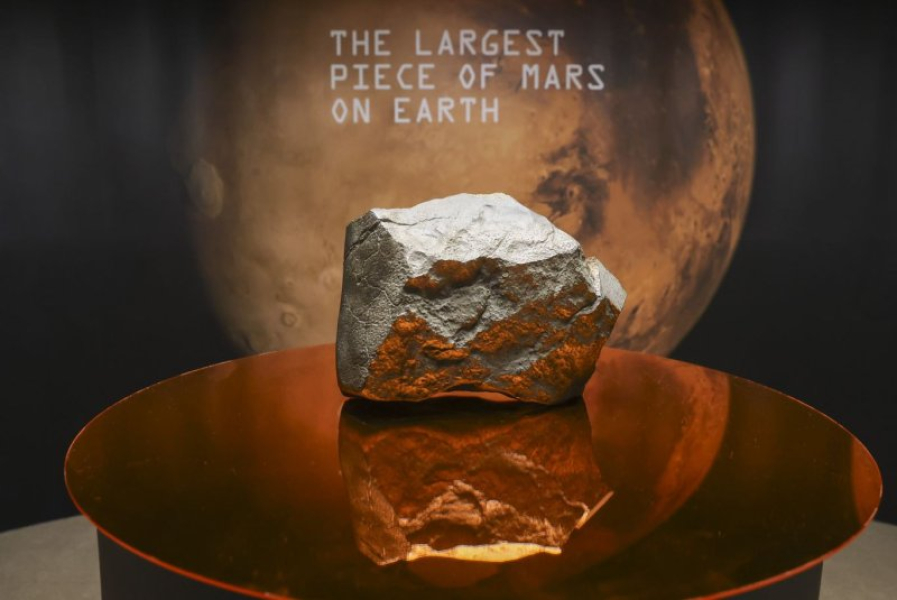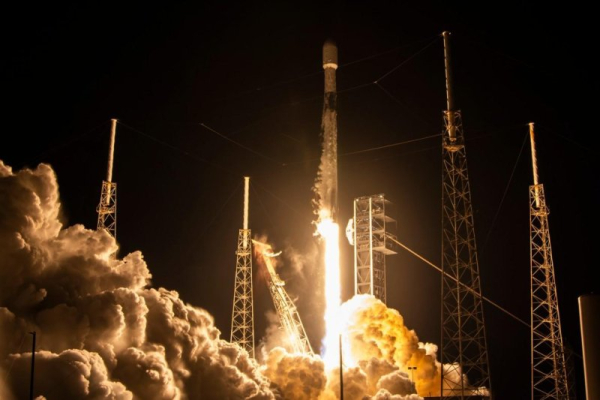
A meteorite from the Red Planet, the largest fragment ever found on our planet, sold for $5.3 million to an anonymous buyer at a Sotheby's auction in New York on Wednesday.
According to ABC News, the starting bid for the 54-pound brownish-red object was $2 million, after which the price rose to $4.3 million, plus $1 million in fees and taxes. The original owner remains unknown.
The stone, called NWA 16788, is 70 percent larger than the next-largest Martian fragment found on the market, measuring nearly 15 inches long, according to auction house Sotheby's.
“This is the largest piece of Mars on Earth,” said Cassandra Hatton, deputy chair of Sotheby’s science and natural history department, in a video posted online. “Remember, about 70% of the Earth’s surface is covered in water. So we’re really lucky that this piece landed on land and not in the ocean, where we might have found it.”
The auction house said the rock was broken off from Mars by an asteroid impact and traveled more than 140 million miles before reaching Earth.
The object fell in the Sahara Desert in the Agadez region of Nigeria. It was found by a meteorite hunter in November 2023, according to Sotheby's.
According to the auction house, 400 of the 77,000 officially recognized meteorites are Martian meteorites.
Analysis showed that it was olivine-gabbro shergottite, a relatively new type of meteorite from Mars. This material is also present in the upper crust of the Earth.
The rocket is made up of 21.2% glass called maskelynite, which was formed when an asteroid collided with the surface of Mars, ejecting the object from the planet.
There are only about 19 craters on Earth large enough to produce meteorites.
“This is not just an amazing find, but a vast array of data that could help us unlock the mysteries of our neighbor, the Red Planet,” Hutton said.
In 2024, the stone was presented to the public at the Italian Space Agency in Rome and in a private gallery in Arezzo, Tuscany.
“It would be sad if it ended up in an oligarch's vault,” Steve Brusatte, a professor of paleontology and evolution at the University of Edinburgh in Scotland, told CNN before the auction.
The Martian rock was part of Geek Week, which featured merchandise related to natural history, science and technology, and space exploration.
Sourse: www.upi.com





